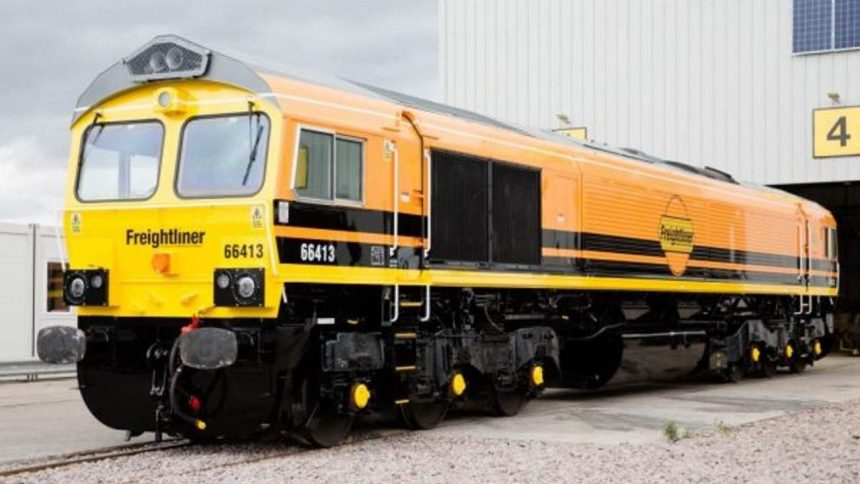The Rail Delivery Group has announced that the rail freight industry is calling for a better joined up railway.
It is also saying that improved framework will support a sustainable and successful rail freight sector in its submission to the government's rail review.
This framework has been published by the Rail Delivery Group on behalf of the RDG Freight Board has been informed by extensive engagement with freight operators, Network Rail and the Rail Freight Group.
Rail freight delivers around £1.7bn of benefits to Britain's economy and supplies £30bn of goods to customers across Britain each year.
This includes materials to build houses, clothes to high street shops and metals used to manufacture mobile phones.
Moving goods by rail rather than road reduces carbon emissions by 76%. A single freight train can remove 76 Heavy Goods Vehicles from the roads.
Another priority for the industry is a coordinated timetable and national planning system with consistent processes for freight operators. This will:
- retain flexibility for freight operators to respond to frequently changing customer needs, with the oversight to quickly amend and add new timetabled train paths. This would allow competition with road which has no need to book time slots, helping to reduce congestion on the road network.
- enable freight operators to seamlessly deliver goods across the country, competing with a national road network that has no boundaries, with 80% of freight journeys currently crossing boundaries between Network Rail routes.
- create a stable environment where private sector freight operators are confident enough to invest in the railway, improving it for all who use it, including passengers. Freight companies have already invested over £2.8 billion in assets and staff in the last 20 years.
What did the officials say?
Paul Plummer, Chief Executive of the Rail Delivery Group, which represents rail companies, said:
“Rail freight is vital to Great Britain's success, keeping shelves stacked, the economy moving and Britain building, while being much better for the environment with carbon emissions kept to a minimum.
“However, change is needed to make the most of the benefits rail freight can bring and we need investment decisions to be taken based on a level playing field with road, with aligned government policy and a nationally joined up rail network. Putting in place the right measures to enable rail freight to grow and making it an attractive choice for more businesses will increase its already significant economic and environmental benefits.”
Hans-Georg Werner, Chairman of the RDG Freight Board, said:
“An aligned approach, locally and nationally, will not only support the rail industry as a whole but will deliver significant benefits to rail freight. The contribution made to the UK economy by rail freight and the environmental benefits associated with it are vast; we need to support the further growth and development of this sector to ensure we can continue to keep Britain moving.”
Where Next?
News Homepage
For the Latest Railway News
RailAdvent Online Shop
Framed Prints, DVD's / Blu-Ray's and more
LocoStop Community
Come and share your railway pictures
Rail Delivery Group
Visit their website


All straightforward common sense really; HS2 would free up many more paths for freight on the WCML, and a properly thought-out electrification programme to end the fragmented mess we have at present would enhance electrically-hauled through transits; the Class 66s may sound powerful on paper but take too long to reach 75mph after a stop or restrictive junction. Re. the cost of further electrification, I feel we have lost the plot-the GW scheme seems to me to be massively over-engineered compared to global standards, so no surprise that future plans have been jeopardised. The bit-part East Mids scheme seems to be going the same way looking at the size of many of the OHL structures. The DfT, for all it’s micro-management appears to lack diligence.